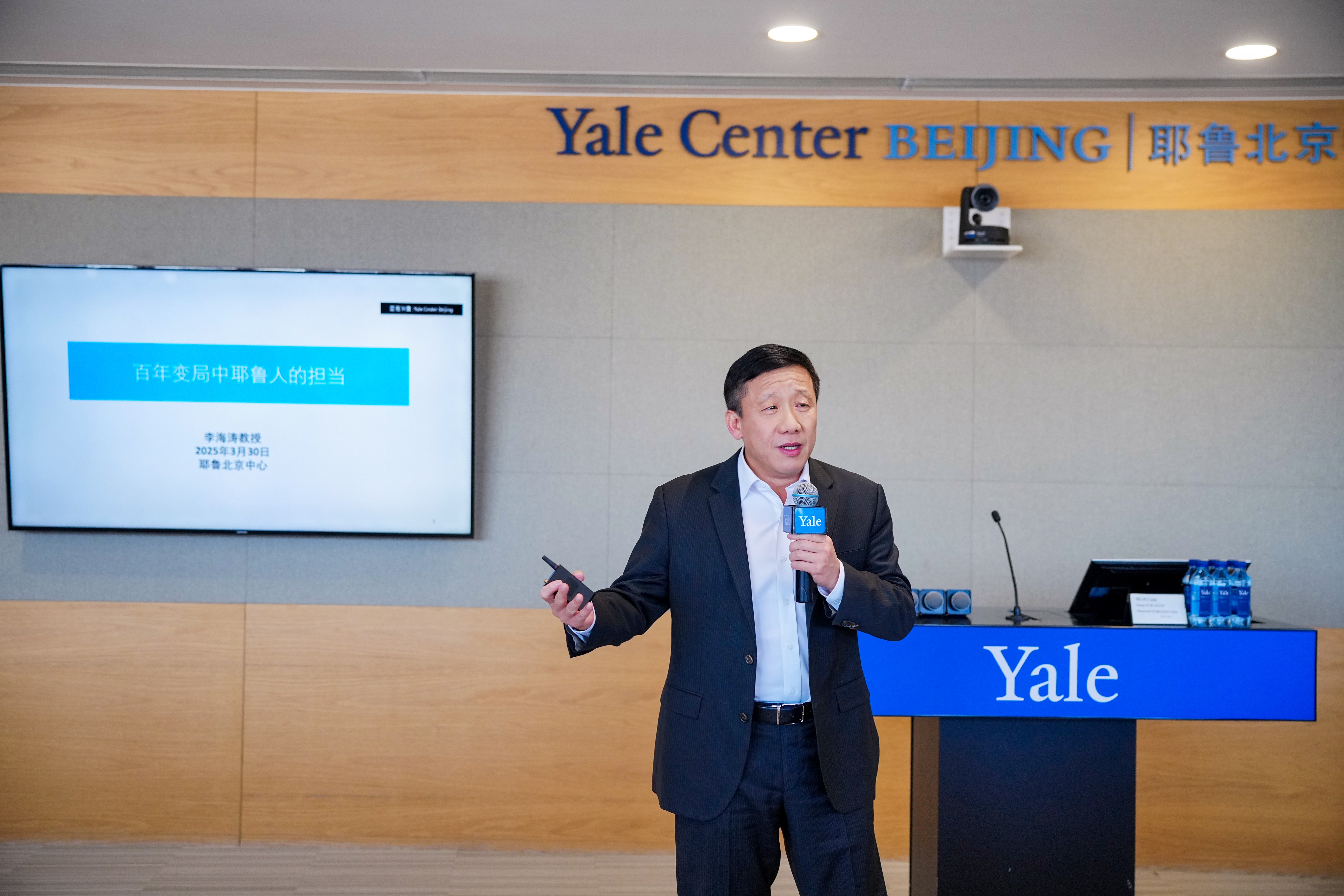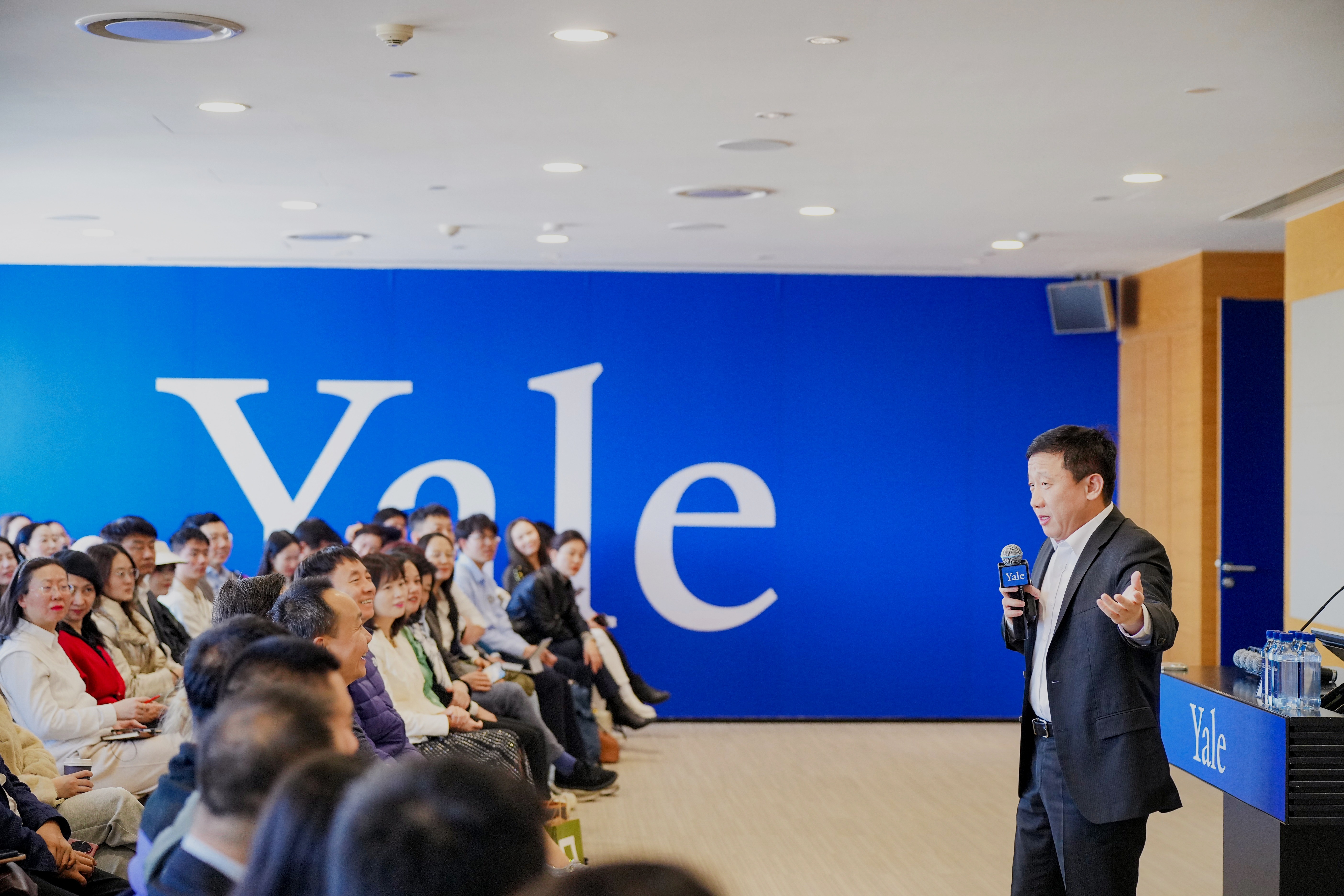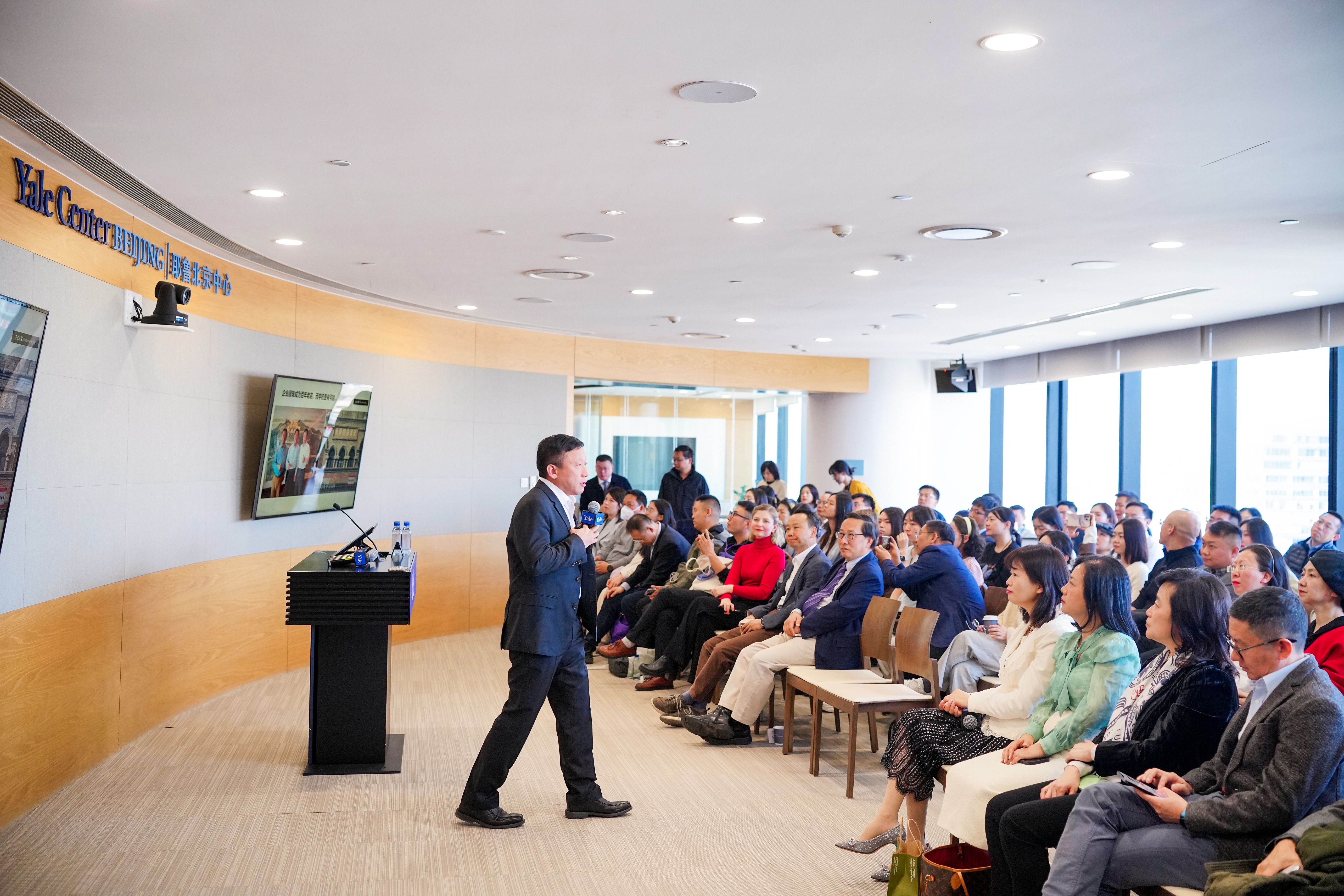
CKGSB Dean Li Haitao recently delivered a keynote address at the 2025 Yale US-China Forum held at the Yale Center Beijing. His speech, titled “Yale’s Role and Responsibility in a Century of Change,” reflected on the transformative period we are experiencing and the profound responsibilities that leaders, institutions, and individuals hold.
The Yale US-China Forum, established in 2011, serves as a vital platform for fostering non-governmental dialogue between the two nations. This year’s forum, held simultaneously at Yale University in the US and the Yale Center Beijing, brought together leaders from academia, government, business, and technology to discuss topics ranging from international affairs to climate change and artificial intelligence.
As a Yale alumnus, Dean Li drew from his personal journey, academic experience, and leadership at CKGSB to highlight the importance of fostering global understanding, encouraging collaboration, and leading with purpose in a rapidly evolving world.

In his address, Dean Li emphasized that China is not only undergoing a once-in-a-century change but a thousand-year transformation. The shift from an agrarian, feudal society to a modern economy is a monumental transition — one that remains ongoing.
He noted how this era of transformation mirrors the experiences of previous generations. Drawing attention to the contributions of Yale alumnus Yung Wing (Rong Hong) — the first Chinese student to graduate from Yale — Dean Li underscored how education and cross-cultural exchange have historically played pivotal roles in China’s modernization.
Yung Wing’s efforts in promoting the Chinese Educational Mission symbolized a forward-thinking approach to international cooperation, bringing Chinese scholars to the United States to study advanced sciences and technologies. According to Dean Li, today’s leaders must continue to embrace this spirit of learning, collaboration, and progress.
Dean Li highlighted Yale’s long-standing relationship with China, citing key contributions through organizations like the Yale-China Association. Institutions such as Xiangya Hospital and Yali High School in Changsha, both founded by the Yale-China Association, remain emblematic of Yale’s positive influence in China’s educational and healthcare systems.
He also pointed to the pivotal role Yale alumni have played in shaping US-China relations. Leaders such as President George H. W. Bush and President Bill Clinton chose engagement over isolation during critical moments in history, fostering diplomatic and economic collaboration.
“The moments when China saw its most significant integration into the global economy were often times when Yale graduates were in leadership,” Dean Li remarked.
Dean Li went on to share how CKGSB is committed to nurturing globally-minded business leaders. Unlike traditional business schools in the U.S, that have primarily focused on MBAs catering to graduates and mid-level managers, CKGSB’s programs cater to those at the “top of the pyramid,” including CEOs, founders, and next-generation leaders who have the power to drive large-scale change.

Dean Li underscored the school’s dedication to creating an ecosystem where leaders not only pursue economic growth but also embrace a global responsibility and social innovation. CKGSB’s emphasis on cultivating an “enriched life” — one that incorporates historical, cultural, and philosophical perspectives — prepares leaders to navigate complex global challenges.
“Our goal is not just to create wealthy leaders, but leaders who understand why they are pursuing wealth and how they can use their influence to build a better society,” he said.
Dean Li passionately advocated for strengthened cooperation between China and the US. In a world where economic decoupling and geopolitical tensions are prevalent, he emphasized that collaboration remains essential for global stability and prosperity.